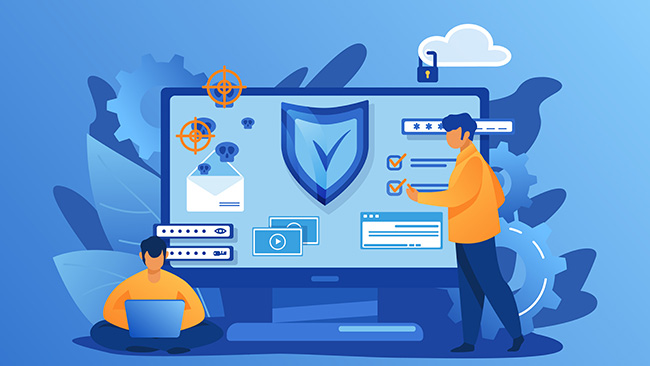Thanks to web tracking, each internet user leaves a digital print every time they go online. Personalized ads that pop out on various platforms and websites are the result of this. So, if you ever feel like you are being watched, chances are your online activity has been collected and then applied for marketing.
Most users use the internet throughout their day on several devices. The activity on all of them is gathered to create their profile. Internet tracking is legal, as it is made to improve user experience on various websites.
Internet users have seemingly accepted this, but the feeling of being tracked is uncomfortable. As a result, many are now searching for ways to protect themselves from being tracked, either through trying out a tracker blocker, changing browsers, downloading different extensions, or other methods.
Let’s explore this topic and learn more about increasing your online privacy.
What is Web Tracking?
Web trackers are scripts created to collect information about website visitors. This information often includes browsing habits and preferences, which are then collected in a single user profile.
Tracking cookies is the most used method for web tracking, and you have probably encountered them numerous times by now. Cookies can collect more than browsing habits – they will remember your location, favorite online stores, which devices you use, and more.
Another popular web tracking method is browser fingerprinting. Businesses and companies use it for collecting and storing their client data. This type of tracking produces individual user profiles.
How to Protect Yourself from Being Tracked Online?
Since 85% of internet users worldwide want to protect their online privacy, tracking has become a massive topic of discussion. Furthermore, your online habits might not be tracked by companies only. Hackers could gain access to your devices and keep an eye on what you do online. Luckily, there are ways to protect yourself and your data. Here’s where to start:
1. Use a Tracker Blocker
The first thing you should do is download a tracker blocker. Preventing ads on various platforms will make your browsing experience more enjoyable and protect your privacy. A tracker blocker is designed to scan a website and its elements, identify cookies or scripts, and stop these tracking mechanisms from monitoring your browsing.
It will not only work on cookies but also block fingerprinting. You won’t be tracked through your IP address unless you allow it yourself. For instance, you can add trusted websites to a list, and the tracker blocker will stay idle when using these websites. Putting a website on this list improves the functionality of websites that feature content tailored especially for a user.
2. Don’t Use Existing Login
Most of us have used our Google or Facebook login when creating new accounts on other websites because it seems easier. You don’t have to waste your time coming up with a username and password, which is practical when in a hurry. However, using an existing login will allow other websites to access your personal information and contacts stored on Google or Facebook.
We have to mention that Facebook is notorious for collecting (and distributing) user data. Even though it happened almost a decade ago, most of us remember the Cambridge Analytica scandal and everything that happened afterward. Therefore, using an existing Facebook login on another website could give Facebook even more information about you and your preferences.
3. Use a VPN
VPN won’t stop cookies from tracking you online. But when combined with a tracker blocker, a VPN will bring your online privacy to the next level. Two main VPN features are encryption and hiding your IP address. Encryption will make data you send and receive completely unreadable while concealing an IP address should prevent fingerprinting.
When you activate a VPN, the websites you visit won’t be registered in your user profile. So, you shouldn’t see any ads connected to the products or services you have checked out while the VPN was switched on.
4. Keep Learning and Adjust Your Settings
Being aware of the tracking is an excellent starting point for increasing online privacy. Once you learn how tracking works, you’ll probably make better decisions online, especially about app permissions. Apps sometimes log more personal data than browsers, so it is best to review the permissions occasionally.
Speaking of permissions, don’t forget your browser settings. You can enable the ‘do not track’ option, which will send a request to websites. Keep in mind that this request will sometimes be ignored, so don’t rely too much on it. Then, there is an incognito tab, which can come in handy because it won’t save any cookies to a device.
Finally, users who share devices with others should delete all personal information every time they end a session. Some of us forget to do this, but setting a reminder on your phone or watch can help. Cleaning the data will become a habit in no time.



Leave a comment
Have something to say about this article? Add your comment and start the discussion.